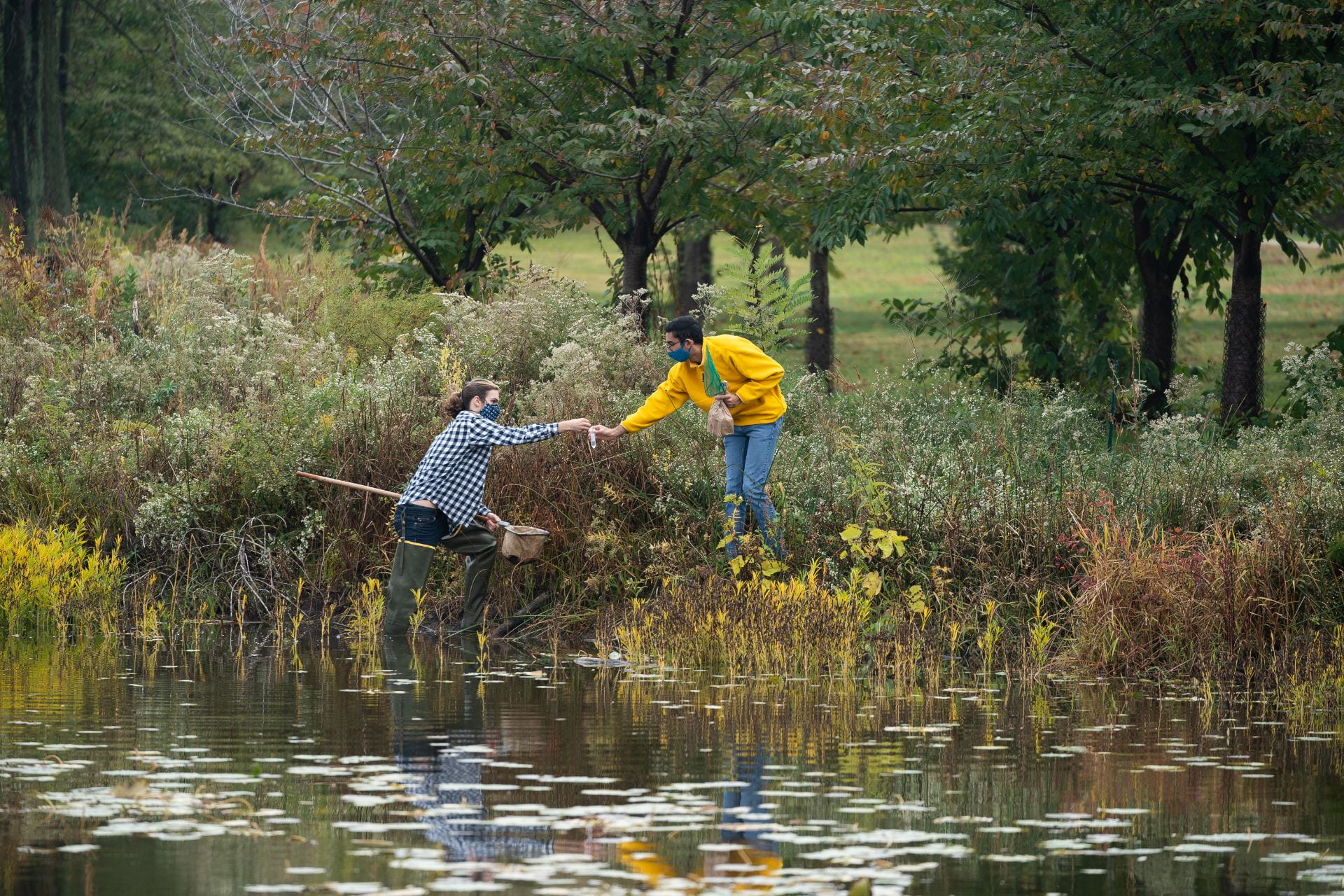Welcome to Cathy Pfister’s website
I am a Professor in the Department of Ecology and Evolution, The Committee of Evolutionary Biology at the University of Chicago
Publications and Events in the Lab
“The more ignorant we become the less value we set on science, and the less inclination we shall have to seek it” Thomas Jefferson
Congratulations to Helen Berry on her retirement from WDNR!
Helen’s leadership at Washington DNR has centered marine vegetation as a critical state resource, and Helen is responsible for key research in kelp beds in Washington state.

New paper on the patterns of kelp traits, microbes and envronmental variables:

Our gratitude to Dr. Pamela Fernandez for hosting Emma and I at Universidad de Los Lagos in Chile.
Congratulations to Casey Richards for publishing his first thesis chapter
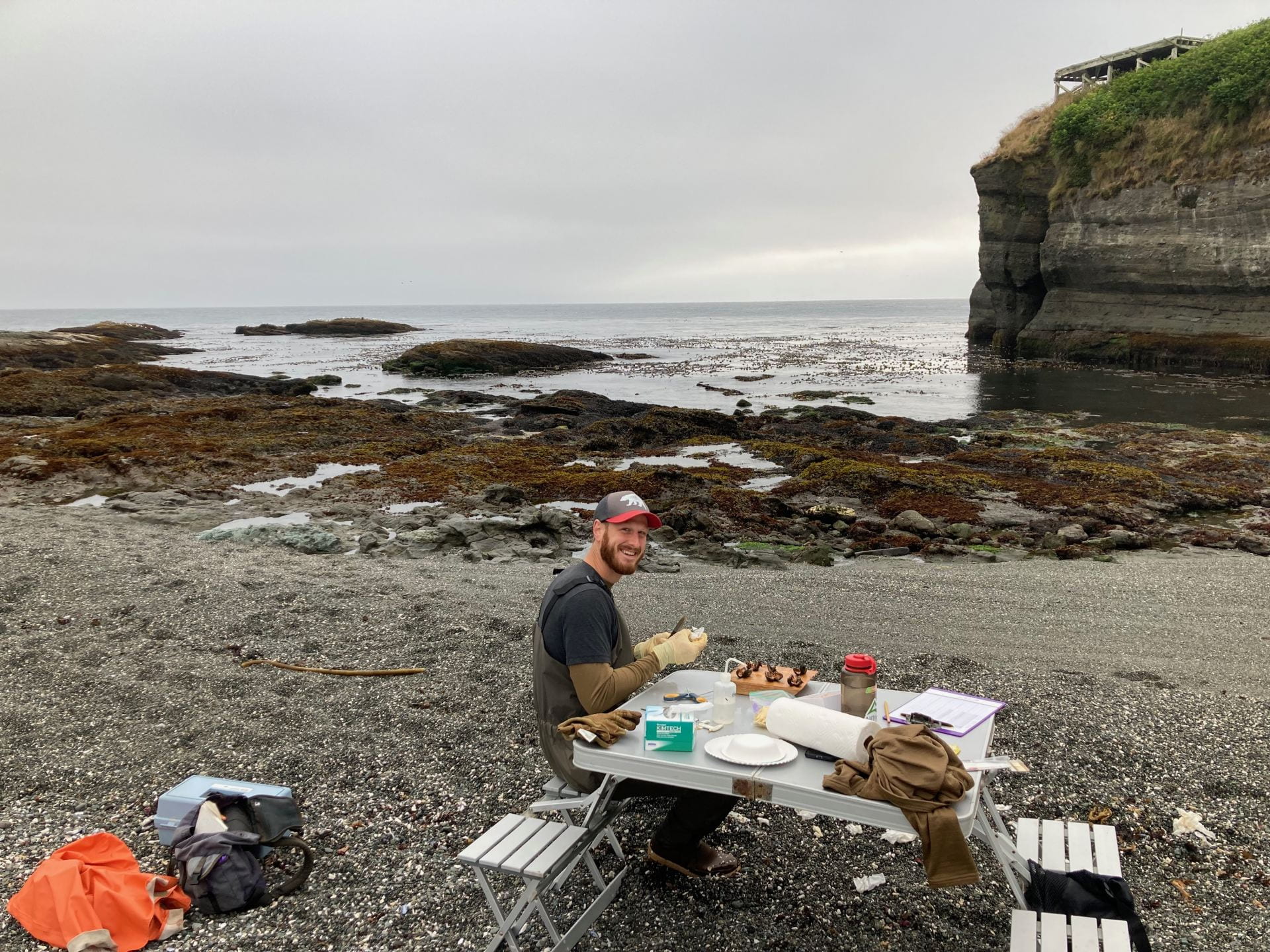
The International Phycological Congress in the Philippines was a great confab of ideas and results!

Congratulations to Sophie McCoy, the 2025 graduation speaker for the Biological Sciences at the University of Chicago!
New paper out from our workshop at the UChicago Center in Paris
2025. Evolutionary history and association with seaweeds shape the genomes and metabolisms of marine bacteria. mSphere 0:e00996-24.
Pisaster cake in honor Max Murray’s proposal defense!
Daniela’s anemones too!


Congratulations to the graduating Nicole Martinez on her poster session and her undergraduate thesis as an Ecology & Evolution Fellow!
Nichos Molnar's undergraduate thesis is published!
Molnar, N.B., Weigel, B.L., Fales, R.J., Pfister, C.A., 2025. Warming Seawater Temperature and Nutrient Depletion Alters Microbial Community Composition on a Foundational Canopy Kelp Species. Environmental Microbiology 27, e70077. https://doi.org/10.1111/1462-2920.70077

Thanks to the Puget Sound Restoration Fund and the Suquamish Tribe for hosting a celebratory and problem-solving session on Bull Kelp in Puget Sound

Welcome to Luella Allen-Waller, a Chicago Fellow working across the Pfister and McCoy labs

New paper on the bacteria isolated from the bull kelp Nereocystis luetkeana
The bull kelp in Washington state host a diverse microbiome. We have isolated and fully sequenced 16 of these bacteria. Further, we show that the amino acid metabolism of these bacteria provide ammonium. They also use the amino acids that are abundant in seawater.
Younker, I.T., Molnar, N., Scorza, K., Weed, R., Light, S.H., Pfister, C.A., 2024. Bacteria on the foundational kelp in kelp forest ecosystems: Insights from culturing, whole genome sequencing and metabolic assays. Environ Microbiol Rep 16, e13270. https://doi.org/10.1111/1758-2229.13270

Welcome Kaylie Scorza to the lab!
Kaylie’s expertise in microbiology is much appreciated and we are pleased to have this talented post-bacc as a fellow researcher!

Congratulations to Emma Stanfield on being awarded a 2024 NSF GRFP for her work on kelp and their interactions with microbes.
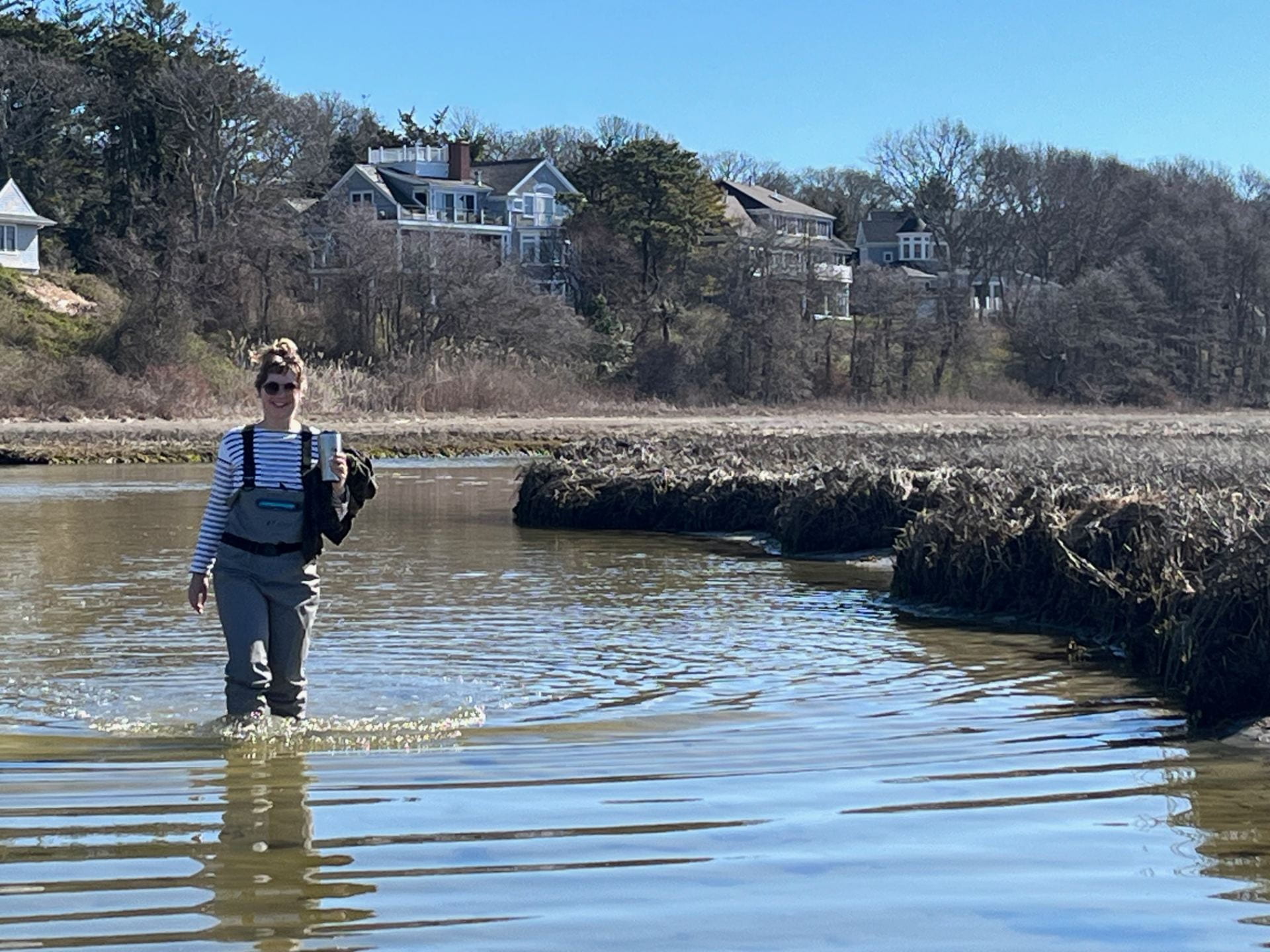
Roo Weed is a DAAD Fellow!
Congratulations to graduate student Roo Weed, who was selected as a DAAD Fellow to the University of Marburg in Germany.
Roo will continue her research on coastal microbes with Dr. Judith Klatt in Sept 2024.
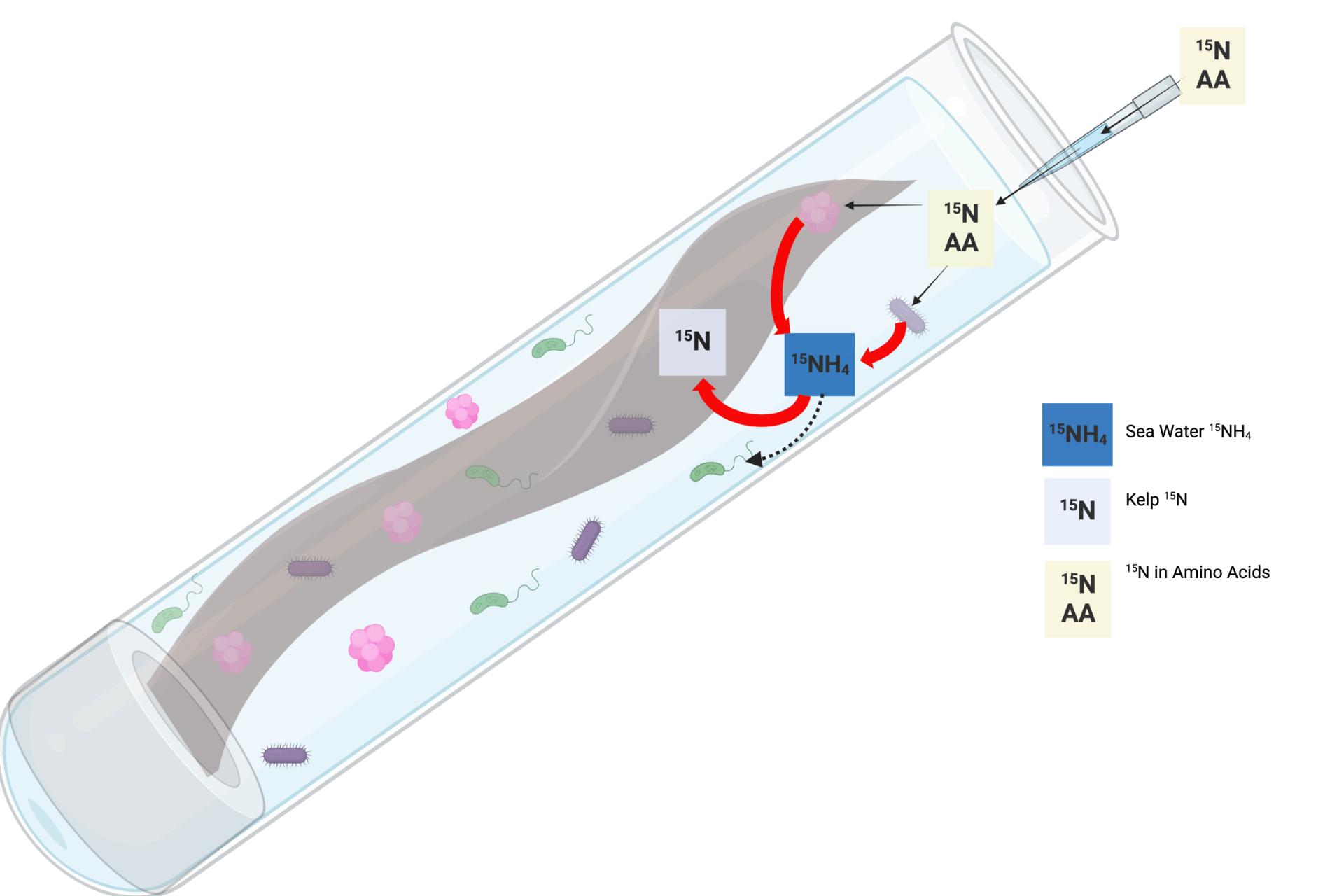
New paper with Alex Hochroth, EE Undergraduate Fellow in the lab.
Kelp-associated microbes generate ammonium from metabolizing amino acids and that ammonium is taken up by kelp.
Hochroth, A., Pfister, C.A., 2024. Ammonification by kelp associated microbes increases ammonium availability. PLoS ONE 19, e0296622. https://doi.org/10.1371/journal.pone.0296622
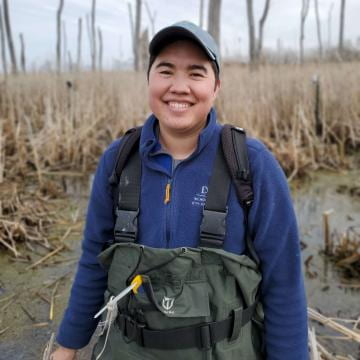
Congratulations to Leo Gaskins who will join the lab Sept 2024 as a Smith Fellow with The Society for Conservation Biology.
Leo’s postdoctoral project is “Restoring diversity and increasing function in Great Lakes wetlands with native ecosystem engineer biomimicry” in partnership with Audubon Great Lakes.
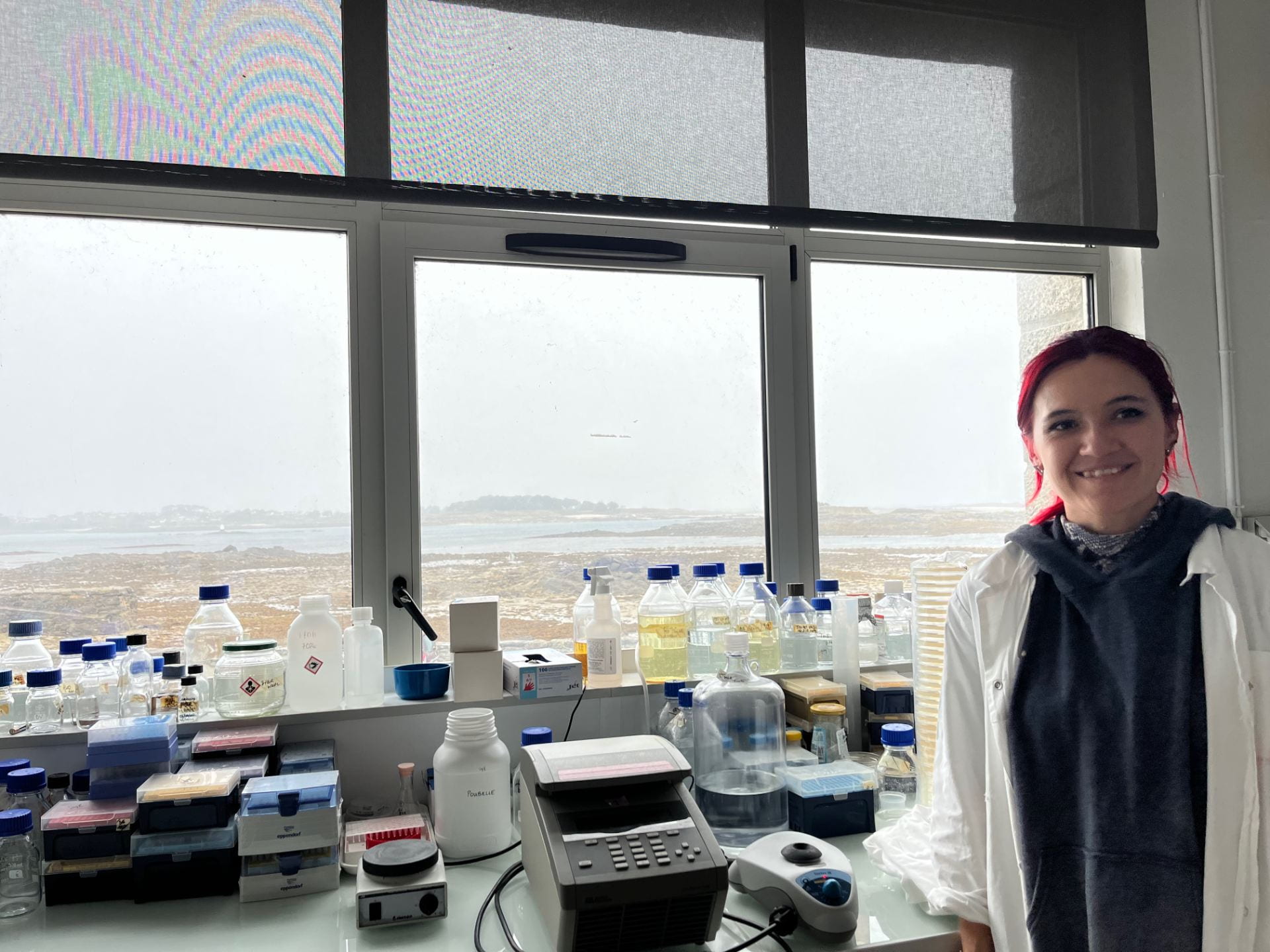
Pfister & Bogan visit Station Biologique de Roscoff as part of our UChicago-CNRS exchange.

Host-microbe interaction workshop
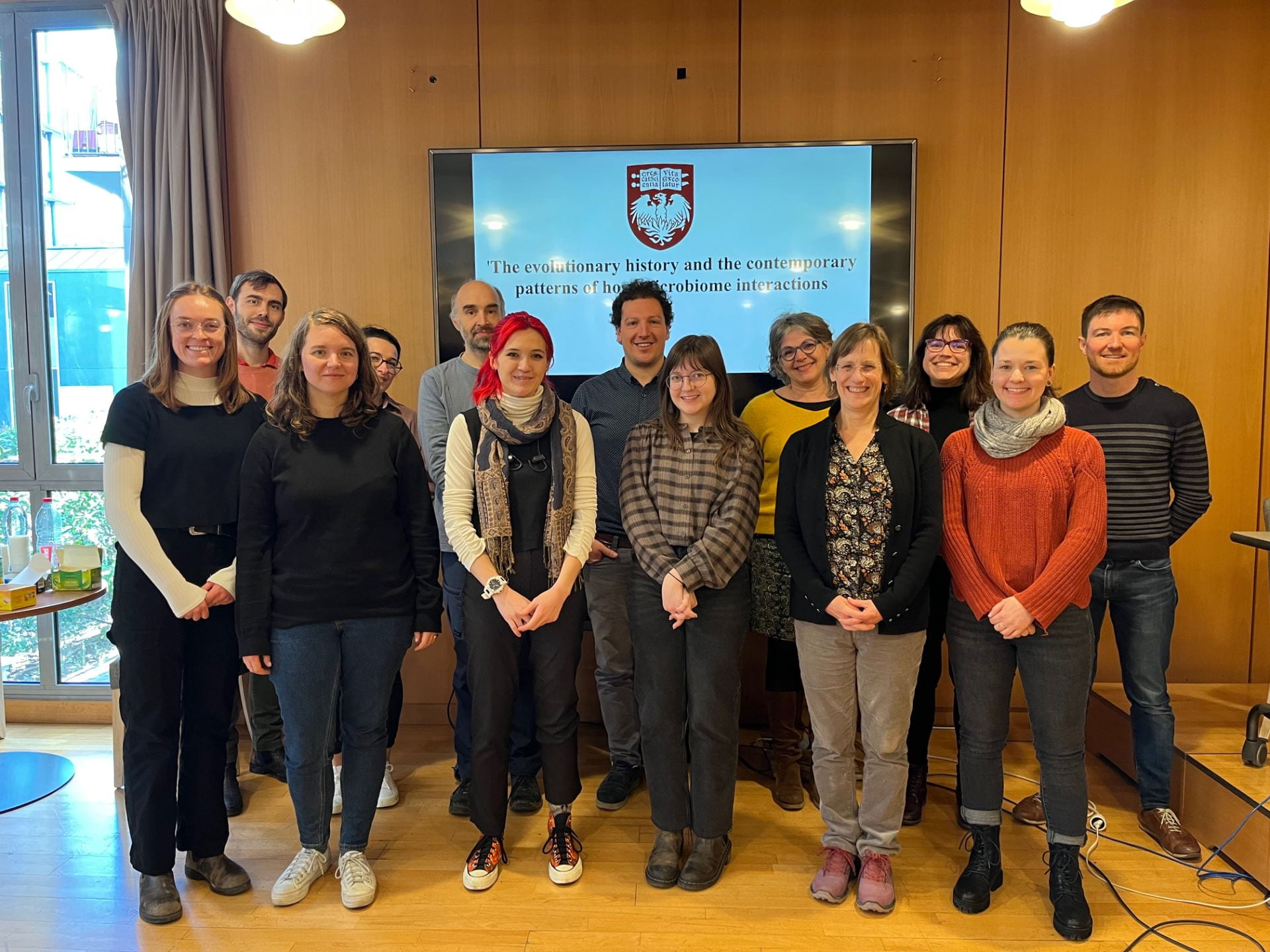
Thanks to the UChicago Center in Paris workshop on host-microbe interactions, bringing together colleagues in France, Belgium, Germany, Italy, Chile, and UChicago

A great collaboration studying the seagrass Posidonia at the CO2 vents in Ischia, Italy.
2023, Pfister, C.A., Cardini, U., Mirasole, A., Montilla, L.M., Veseli, I., Gattuso, J.-P., Teixido, N. Microbial associates of an endemic Mediterranean seagrass enhance the access of the host and the surrounding seawater to inorganic nitrogen under ocean acidification. Scientific Reports 13, 19996. https://doi.org/10.1038/s41598-023-47126-4.
Microbes in association with the seagrass Posidonia ammonify and increase host access to nitrogen. This association enhances water column productivity but is negatively affected by ocean acidification.
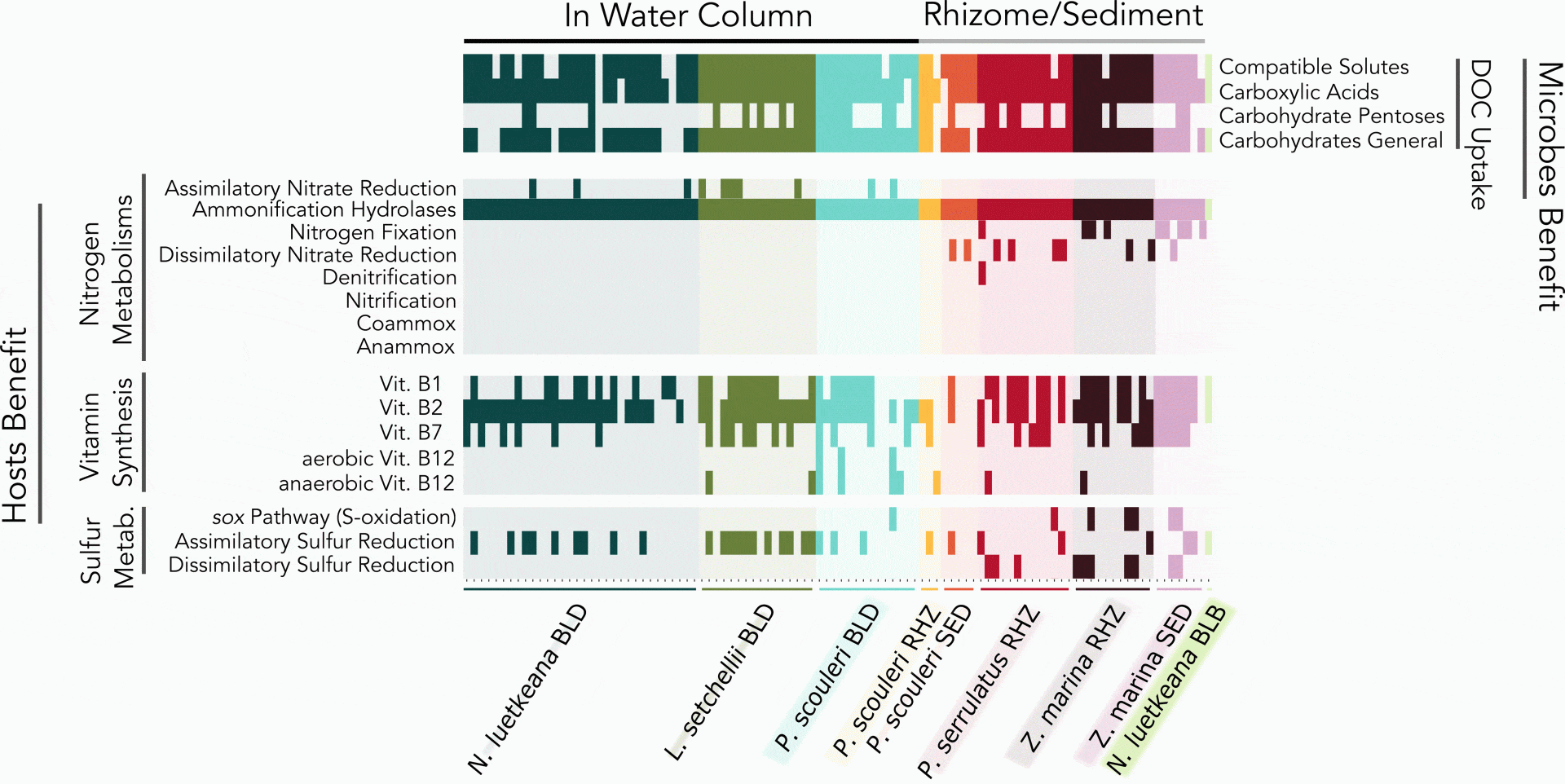
Multiple functions are provided by microbes, and dissolved organic carbon are provided by kelp and seagrasses
Khashiff Miranda and I led this search for microbial function across macrophytes, including nifH gene discovery in surfgrasses!
2022. Miranda K, BL Weigel, E Fogarty I Veseli, A. Murat Eren, A Giblin, and CA Pfister. The diversity and functional capacity of microbes associated with coastal macrophytes. mSystems. https://journals.asm.org/doi/epub/10.1128/msystems.00592-22
Casey Richards is a 2022 Pat Tillman Scholar.
Congratulations Casey!

Thanks to the Pat Tillman Foundation and its support of US Veterans.
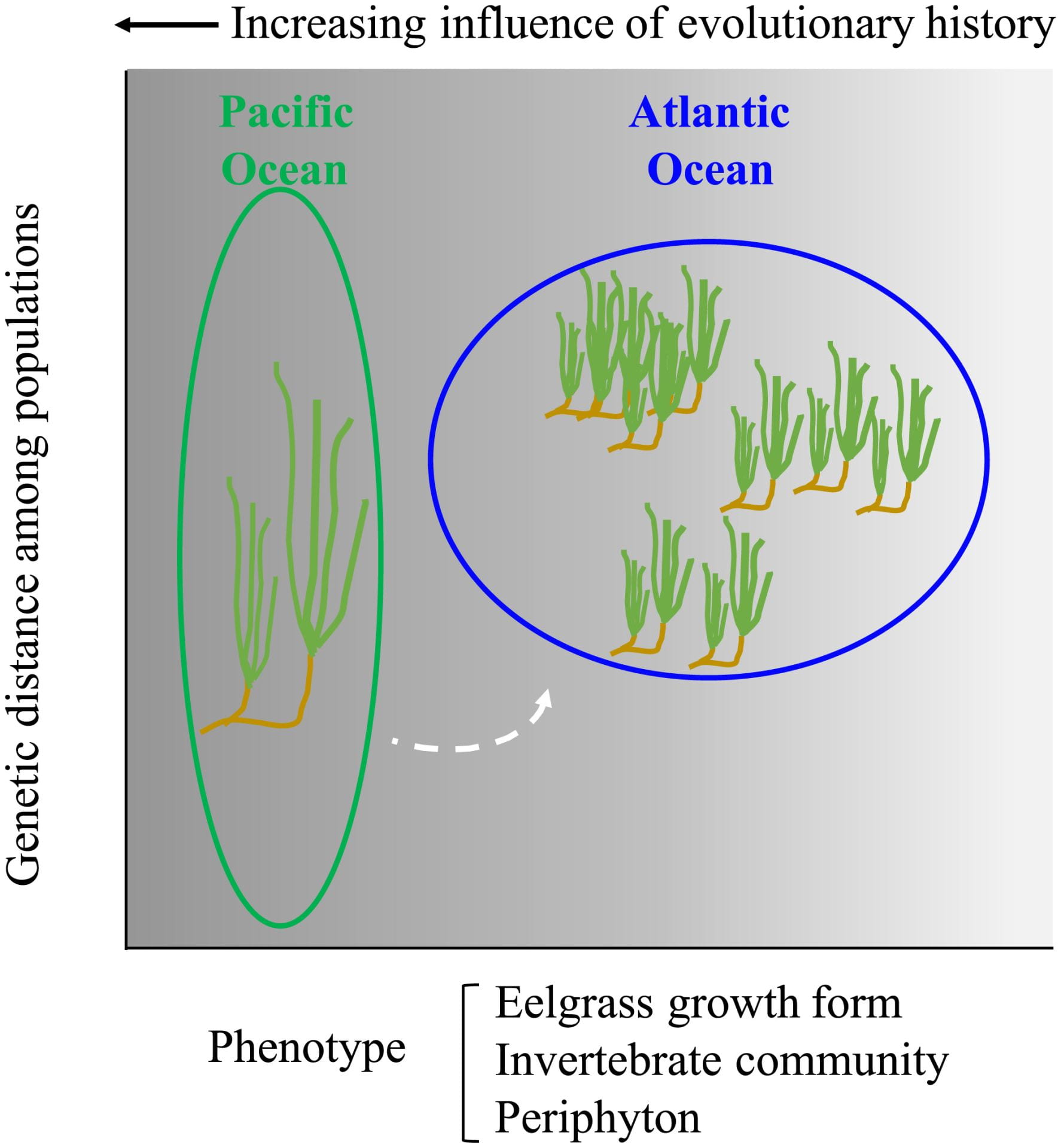
A commentary on the global study of the seagrass Zostera marina by Duffy et al. History matters when understanding differences among Atlantic and Pacific Ocean basins.
2022. Pfister, CA. The evolutionary past and the uncertain future of foundational species. Proceedings of the National Academy of Sciences. https://www.pnas.org/doi/epdf/10.1073/pnas.2211134119
A commentary on this cool paper: Duffy et al. 2022. A Pleistocene legacy structures variation in modern seagrass ecosystems. PNAS. Link
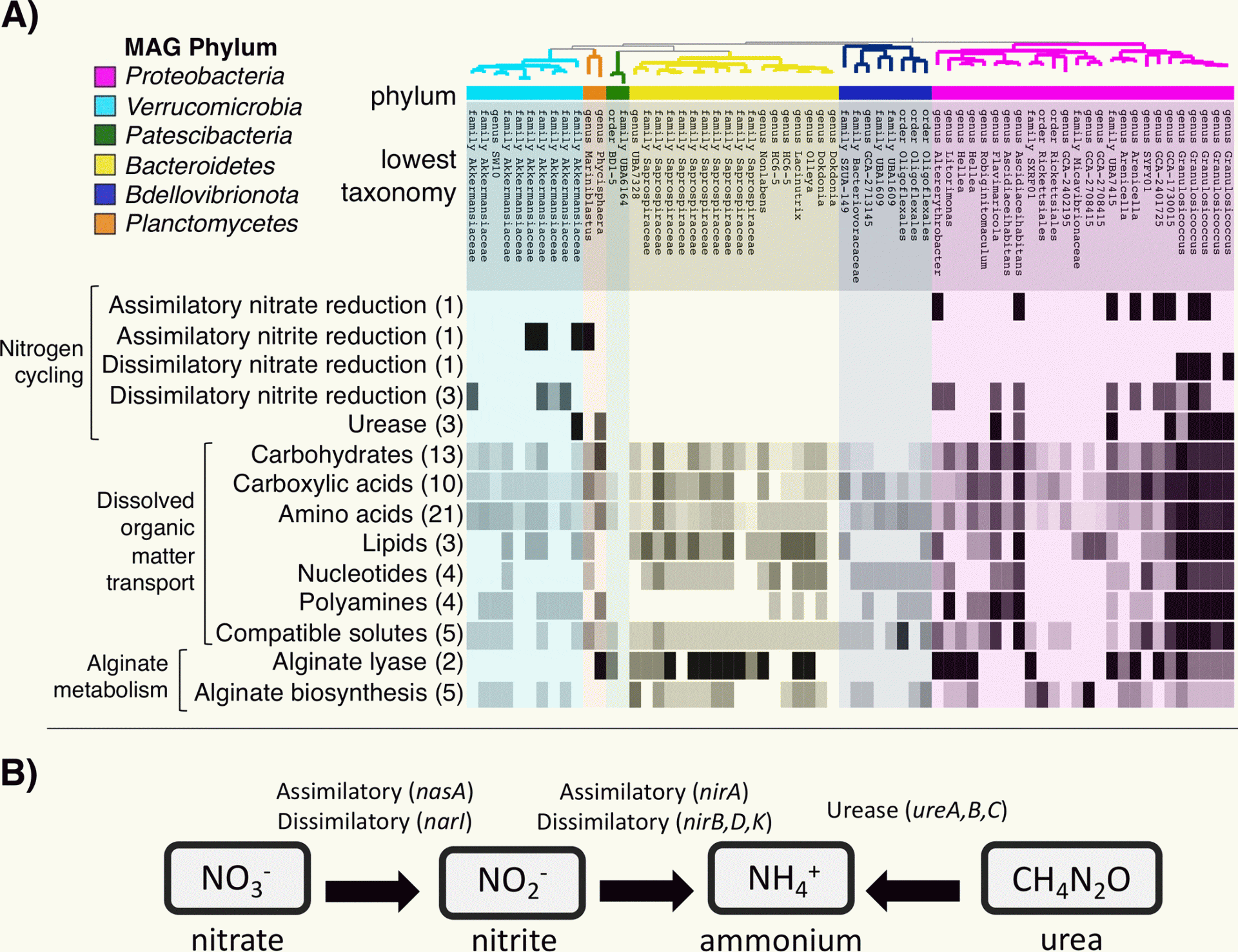
The microbial metagenome of the bull kelp Nereocystis is published!
Brooke Weigel led this amazing investigation into the microbial diversity and functions of the bull kelp metagenome,
2022. Weigel, BL, Miranda K, Fogarty E, Watson, A, Pfister CA. Functional insights into the kelp microbiome from metagenome assembled genomes. mSystems.
https://10.1128/msystems.01422-21
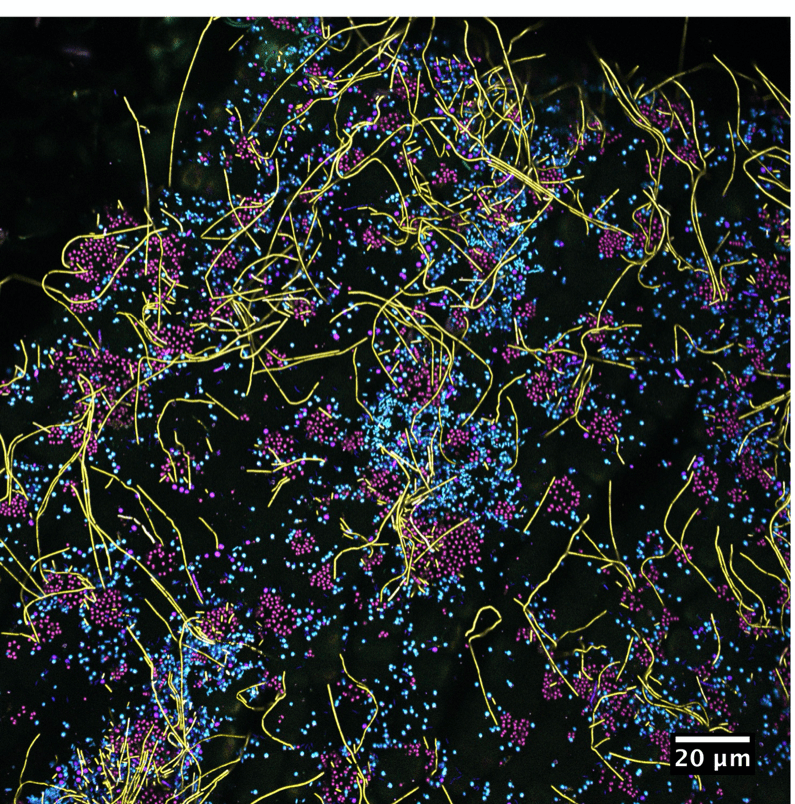
New paper with Jessica Mark Welch’s group on visualizing the kelp microbiome. See microbial diversity on the bull kelp.
see the Video Byte on visualizing the kelp microbiome!
2022. Ramirez-Puebla, ST, Weigel BL, Jack L, Schlundt C, Pfister CA, Mark Welch JL. Spatial organization of the kelp microbiome at micron scales. Microbiome.10(52) https://doi.org/10.1186/s40168-022-01235-w link:https://rdcu.be/cJLNw
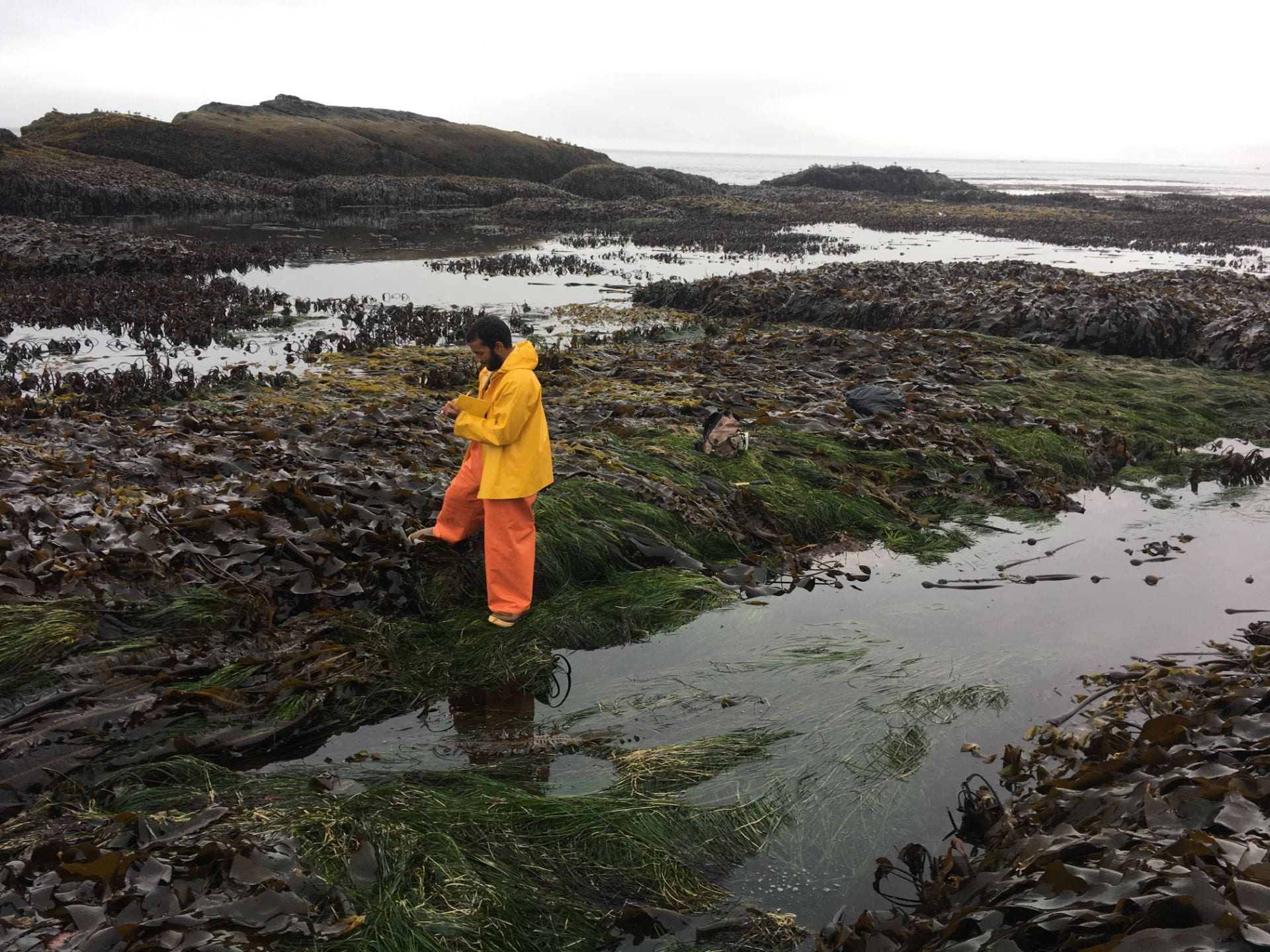
Khashiff Miranda leads an in situ experimental study showing macroalgae have increased carbon turnover compared with surfgrass. Link
2021. Miranda, K., Weigel, B.L., McCoy, S.J., Pfister, C.A. Differential impacts of alternate primary producers on carbon cycling. Ecology 102.
https://doi.org/10.1002/ecy.3455

Kelp studies and restoration featured in a Seattle Times article
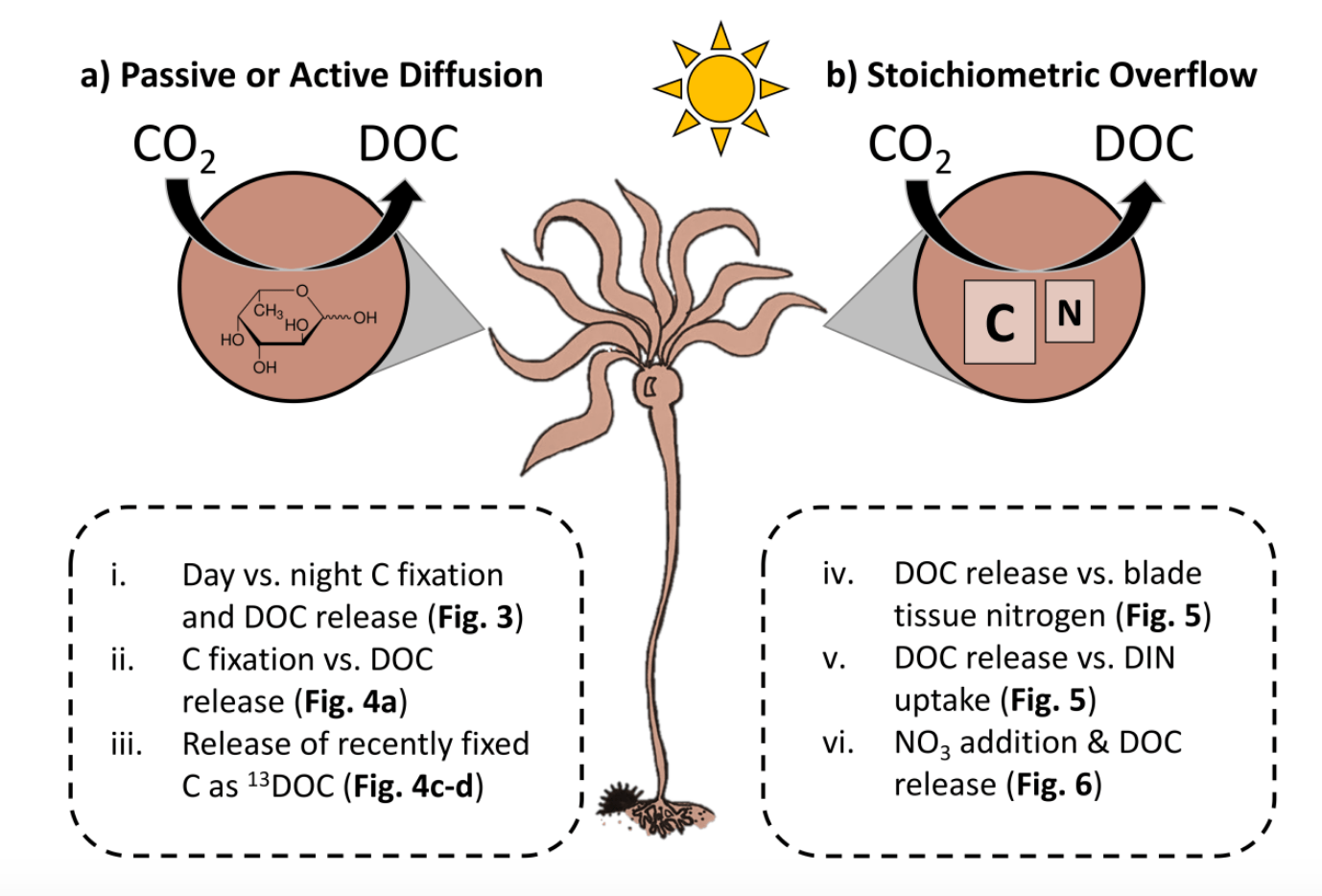
Weigel & Pfister. 2021.The dynamics and stoichiometry of dissolved organic carbon release by kelp, Ecology
Brooke leads an experimental study, using stable isotope analyses, that shows that the bull kelp Nereocystis releases 16% of recently fixed carbon as dissolved organic carbon. Link
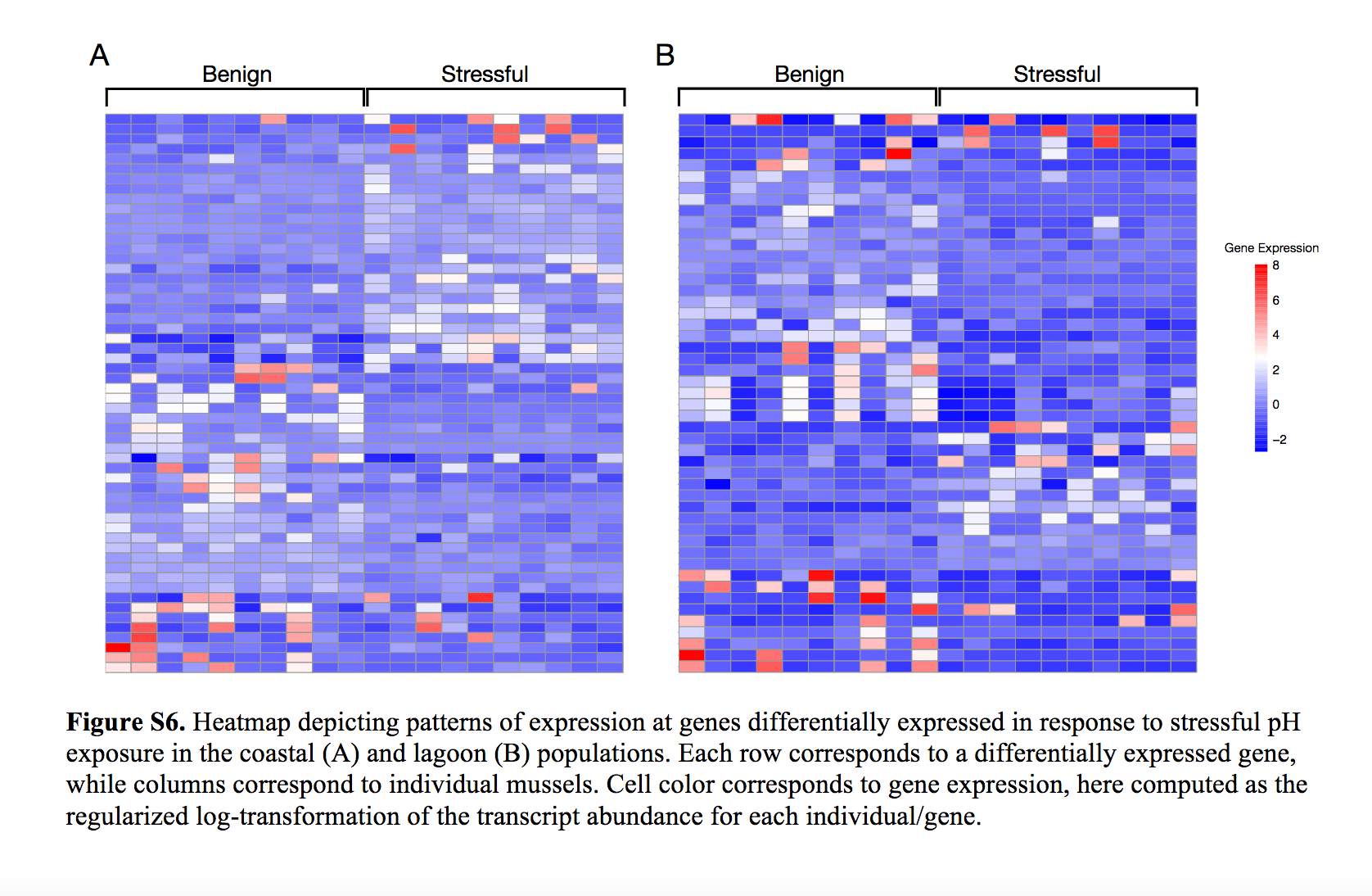
Bitter, Kapsenberg, Silliman, Gattuso, Pfister. Magnitude and predictability of pH fluctuations shape plastic responses to ocean acidification. 2021. The American Naturalist 186:582–593.
Mark Bitter leads an experimental study that shows that populations differ in gene expression plasticity in response to fluctuating pH. Mussels from habitats with large pH fluctuations and low predictability display reduced phenotypic plasticity.


Bios 20196 - Keeping ecology outdoors!
Kudos to our Ecology class for safe and fun outdoor labs in Fall 2020 and 2021. Read the UChicago story here
